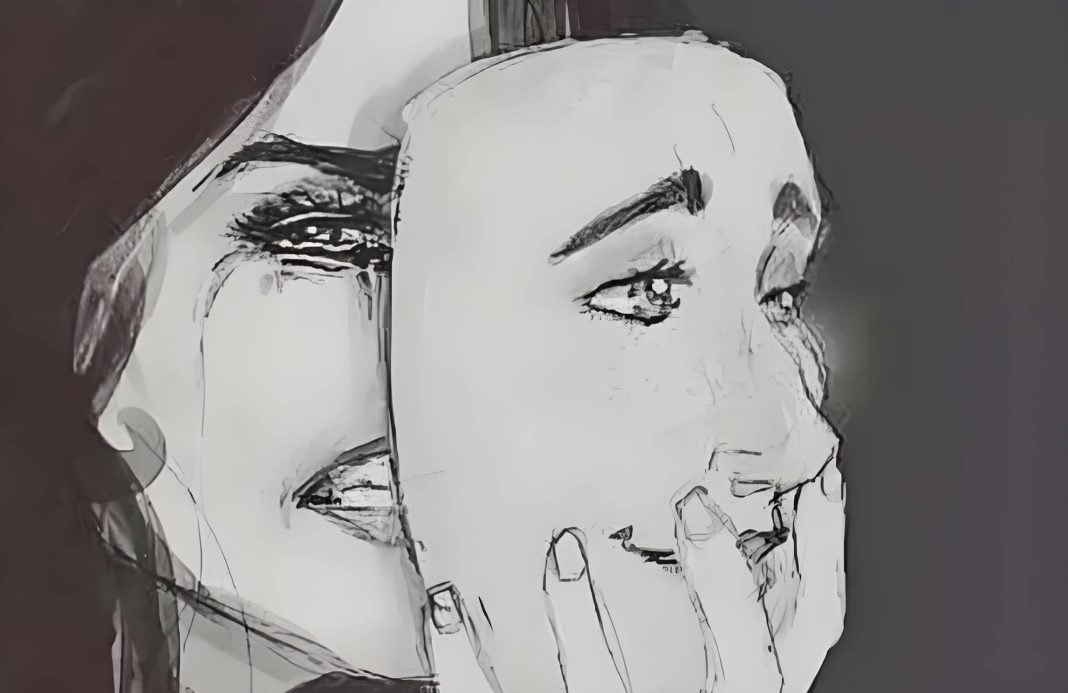In today’s society, depression has become a widely discussed topic. However, there are still many misconceptions regarding how to identify depression and whether it is possible to be misdiagnosed by feigning depression. By exploring this issue, we can gain a deeper understanding of the complexity of depression and recognize some key challenges in identifying depression.
The Appearance and Essence of Depression
Depression is not as easily judged by surface symptoms as physical illnesses. Often, individuals with depression may appear normal on the surface, even cheerful and optimistic. However, true suffering is often hidden deep inside them, not easily perceived by others.
A Zhihu user shared his firsthand experience, having been hospitalized twice for depression, yet almost all doctors initially thought he was fine, even doubting whether he truly had depression. This misjudgment is not only because doctors lack personal experience with depression but also because the manifestations of depression are too complex and diverse. As described by the user, true depression sufferers may carry immense pain internally while maintaining normal interactions with others, and may even have suicidal impulses.
Recognition of Depression: Challenges for Doctors and Patients
Although doctors are professionally trained in psychiatry, they still face significant challenges in recognizing depression. The expressions of depression patients often vary, with substantial differences between mild and severe symptoms, and the symptoms of the same patient may differ at different times. As mentioned by the user, doctors may underestimate the inner pain of patients based on their external appearances, leading to misdiagnosis or delayed treatment.
On the other hand, depression patients themselves often have a sharper self-judgment ability compared to doctors. Having a deep understanding of the pain of depression, they can more accurately identify whether others truly have depression and the severity of the condition. An individual feigning depression may deceive doctors by mimicking certain external symptoms, but they cannot truly replicate the internal anguish experienced by depression sufferers. This pain serves as a “weapon” for depression patients to identify the conditions of others, which impostors find difficult to touch.
Why is it difficult for impostors to deceive with feigned depression?
If someone attempts to feign depression to deceive doctors, they may imitate common depressive symptoms like low mood, loss of appetite, or insomnia. However, doctors rely not only on the patient’s descriptions but also on observing the overall behavior, patterns, and psychological state of the patient for a comprehensive judgment.
The manifestations of severe depression patients are often highly intricate; they may appear extremely rational and lucid during conversations with doctors, even capable of joking, while internally enduring indescribable suffering. This contradictory display is challenging for impostors to mimic as they cannot genuinely experience the pain caused by depression.
Furthermore, doctors utilize detailed medical history inquiries and psychological assessments to assist in diagnosis. These assessment tools help doctors more accurately assess the mental state of patients, which impostors may find challenging without sufficient medical knowledge.
The Risk of Misdiagnosis and the Recognition Dilemma of Depression
Although deceiving with feigned depression is difficult to succeed, we cannot ignore the possibility of misdiagnosis. Doctors often need to make diagnoses within a limited time, and the varied manifestations of depression increase the risk of misdiagnosis. Especially when patients exhibit relatively normal behavior, doctors may underestimate the severity of their condition, leading to delayed treatment.
A typical example is when a user on a platform mentioned that a driver accompanying him to a mental hospital was perceived by doctors to be in a more severe state than the user because the driver’s speech was filled with pessimism while the user appeared more optimistic. This outwardly “normal” appearance could potentially lead to a misjudgment of the condition by doctors, further deepening the patient’s suffering.
How to Better Identify Depression?
To reduce the occurrence of misdiagnosis, we need to enhance the process of identifying depression from multiple perspectives. Firstly, doctors should focus more on patients’ inner experiences during diagnosis, not merely on observing external presentations. This requires doctors to establish deeper communication with patients during the diagnosis process to understand their true internal feelings.
Secondly, patients and their families should pay more attention to the psychological state of patients in daily life to promptly detect early symptoms of depression. Emphasizing mental health education, spreading knowledge about depression, enabling more people to correctly identify depression, and seek professional help in the early stages of the illness.
Lastly, we need to strengthen the trust relationship between doctors and patients, encouraging patients to express their pain candidly rather than attempting to deceive or conceal to gain the doctor’s attention. Only with a foundation of full understanding and trust can doctors make more accurate diagnoses and provide more effective treatment plans for patients.
Identifying and diagnosing depression is a complex process that requires collective efforts from doctors, patients, and their families. Although deceiving with feigned depression is challenging, we must still acknowledge the risk of misdiagnosis. By enhancing mental health education, improving doctors’ diagnostic capabilities, and boosting patients’ self-awareness, we can better address the challenges of depression and help more patients emerge from mental shadows and return to normal life sooner.


